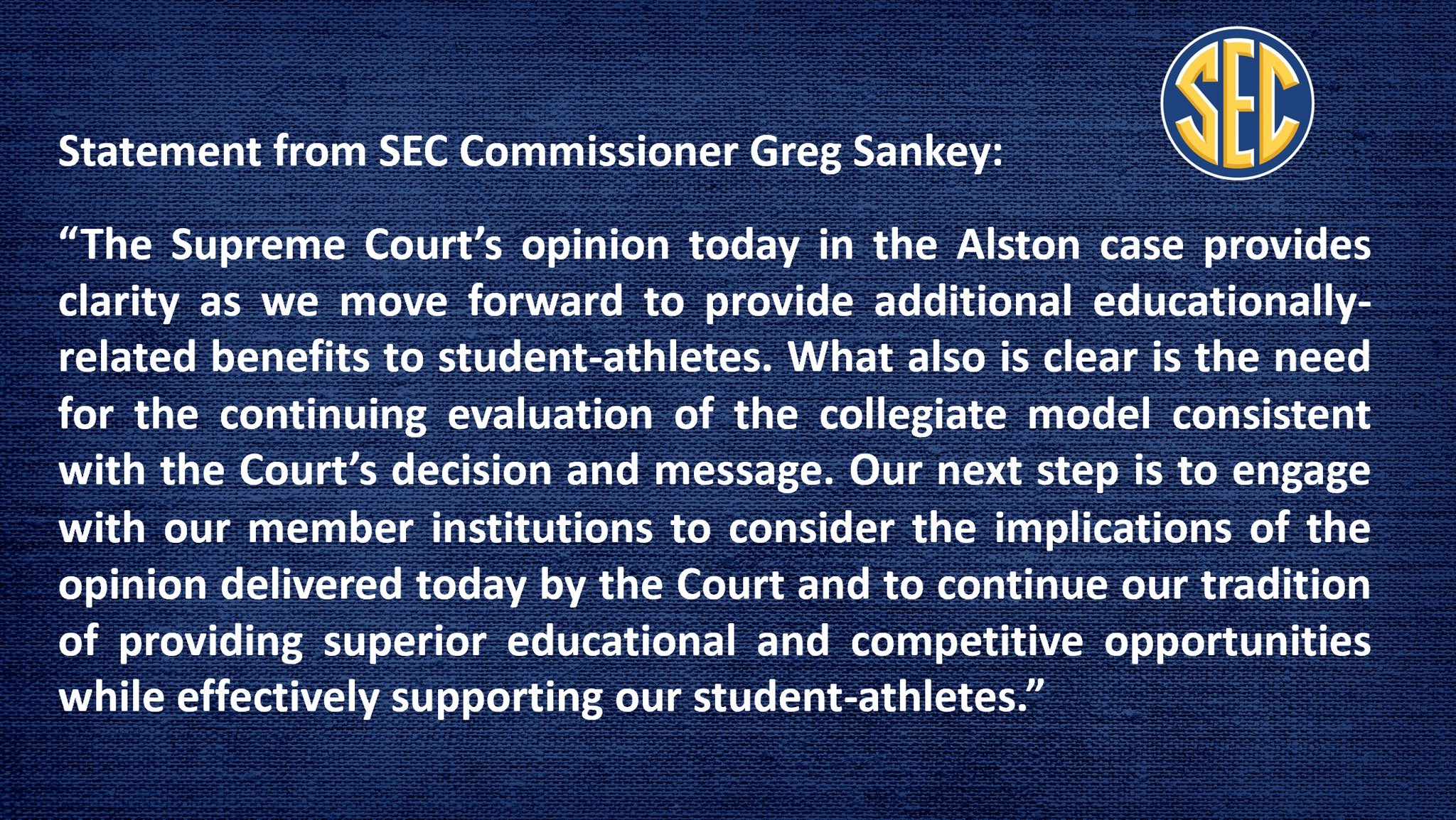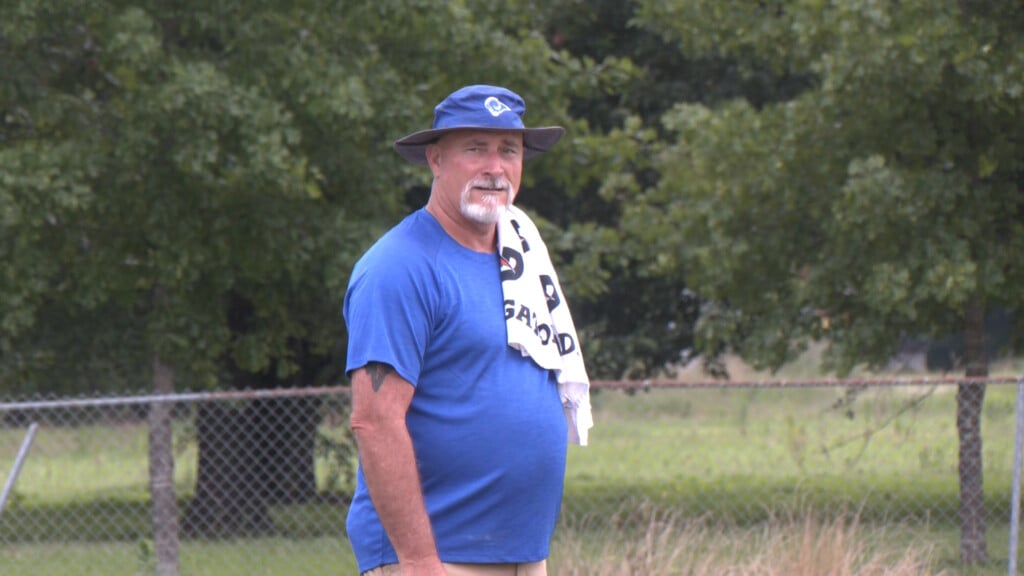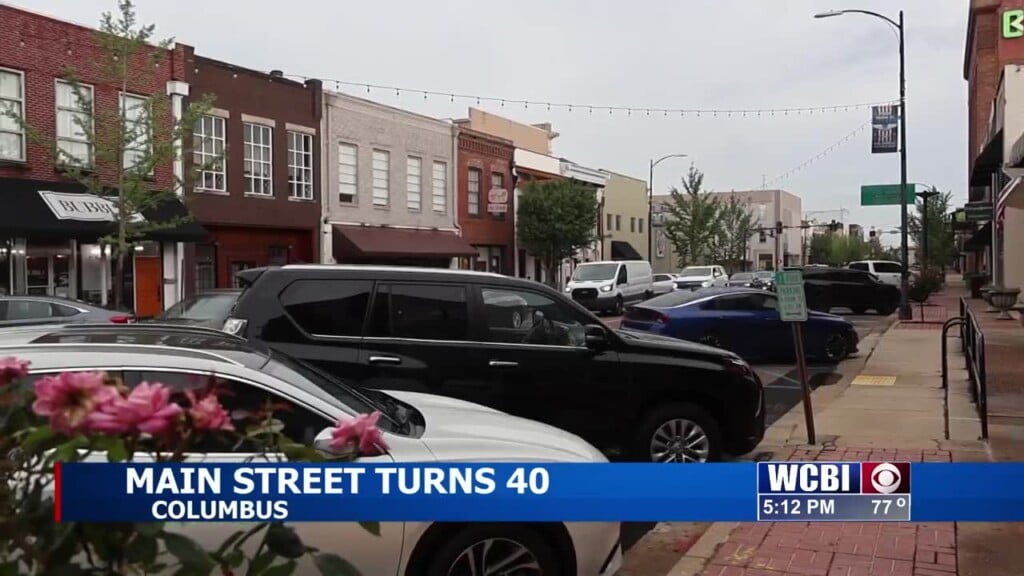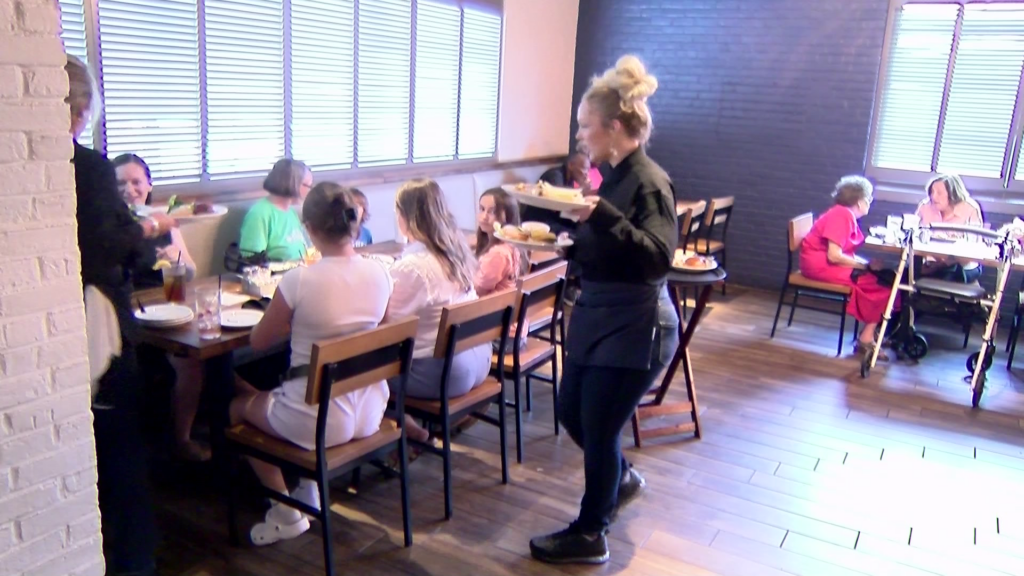Supreme Court Rules Against NCAA in Compensation Case
WASHINGTON (AP) — The Supreme Court ruled unanimously
Monday the NCAA can’t limit education-related benefits — like computers and paid internships — that colleges can offer their sports stars, a victory for athletes that could help open the door to further easing in the decades-old fight over paying student-athletes.
Schools recruiting top athletes could now offer tens of thousands of dollars in education-related benefits that also include study-abroad programs and graduate scholarships. However, the case doesn’t decide whether students can simply be paid salaries for the benefits their efforts bring — measured in tens of millions for many universities.
The high court agreed with a lower court’s determination that NCAA limits on the education-related benefits that colleges can offer athletes who play Division I basketball and football violate antitrust laws.
The case is important in the short term for students who may see schools competing for talent by sweetening their offers with a variety of education-related benefits. It’s also important in the long term be

Source: SEC
cause it sets the stage for future challenges to NCAA rules limiting athletes’ compensation.
Justice Neil Gorsuch wrote for the court that the NCAA sought “immunity from the normal operation of the antitrust laws,” an argument the court rejected. Gorsuch said that allowing colleges and universities to offer “enhanced education-related benefits … may encourage scholastic achievement and allow student-athletes a measure of compensation more consistent with the value they bring to their schools.”
Under current NCAA rules, students cannot be paid, and the scholarship money a college can offer is capped at the cost of attending the school.
The NCAA had defended its rules as necessary to preserve the amateur nature of college sports, preventing a blurring of the line between them and professional teams, with colleges trying to lure talented athletes by offering over-the-top benefits. A lower court had upheld the NCAA’s limits on scholarships and cash awards, and the high court wasn’t asked to weigh in on those.
Writing for only himself, Justice Brett Kavanaugh signaled where Monday’s decision may lead. He said there are “serious questions” about whether the NCAA’s other restrictions on compensating athletes can stand. Kavanaugh wrote that “traditions alone cannot justify the NCAA’s decision to build a massive money-raising enterprise on the backs of student athletes who are not fairly compensated.”
“Nowhere else in America can businesses get away with agreeing not to pay their workers a fair market rate on the theory that their product is defined by not paying their workers a fair market rate. … The NCAA is not above the law,” wrote Kavanaugh, who as a college student played on Yale’s junior varsity basketball team.
The case was brought by former athletes, including West Virginia football player Shawne Alston. It followed a separate, earlier lawsuit brought by athletes including former UCLA basketball player Ed O’Bannon and NBA legends Oscar Robertson and Bill Russell where an appeals court concluded NCAA rules aren’t exempt from antitrust law. That case ended with the Supreme Court declining to weigh in.
As a result of Monday’s ruling, the NCAA itself can’t bar schools from offering Division I basketball and football players additional education-related benefits. But individual athletic conferences can still set limits if they choose.
“It is our hope that this victory in the battle for college athletes’ rights will carry on a wave of justice uplifting further aspects of athlete compensation,” said Steve Berman, an attorney for the former college athletes, in a statement following the ruling. “This is the fair treatment college athletes deserve.”





Leave a Reply